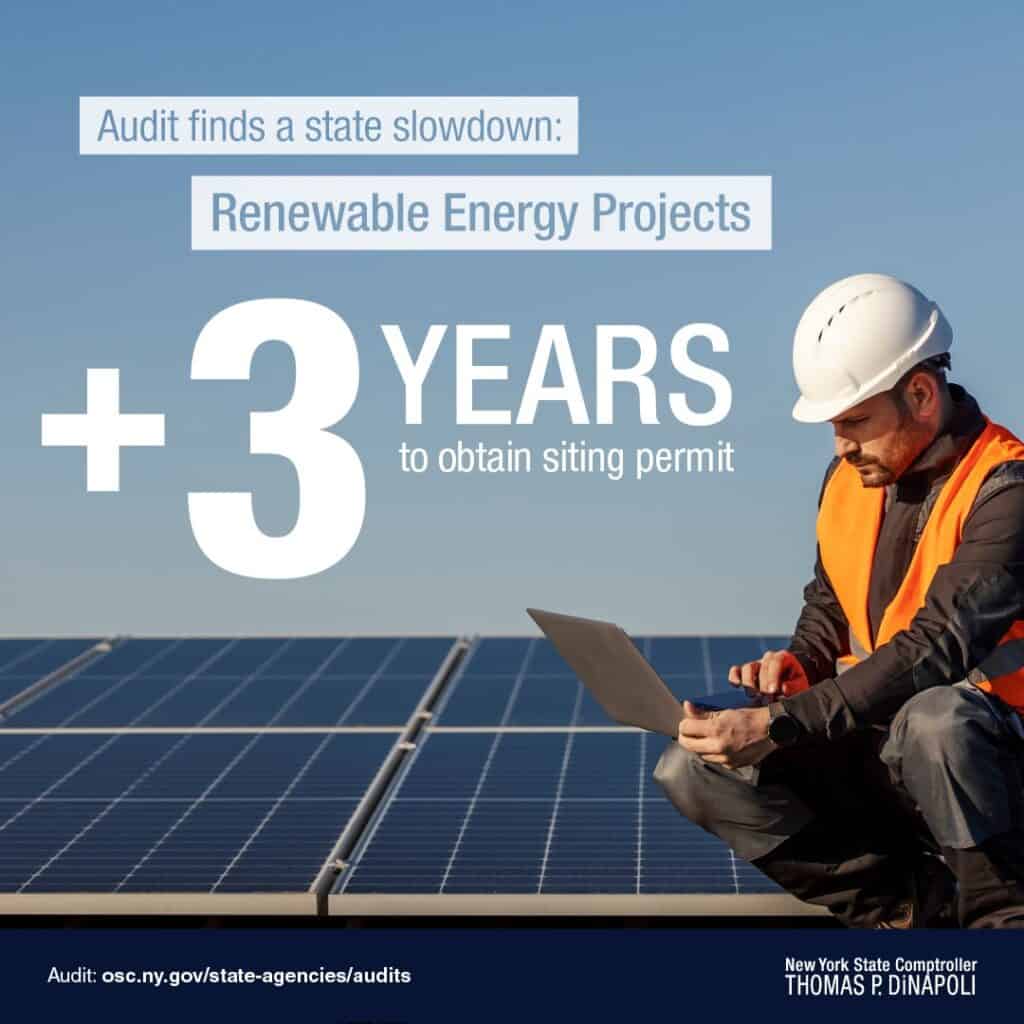
Audit Finds Siting Permit Applications Causing Slowdown
Renewable energy projects have been taking more than three years to receive siting permits due to application delays, according to an audit released today by New York State Comptroller Thomas P. DiNapoli. The audit of the Office of Renewable Energy Siting (ORES) found permit applications were often delayed due to missing or insufficient documentation. The audit suggests ORES should be more transparent about the timeliness of the application process and where delays occur, as these projects are meant to help the state meet its ambitious clean energy goals.
“New York is rightfully trying to lead the way to a clean energy transition, and the Office of Renewable Energy Siting was created to expedite the siting of renewable energy projects to help achieve the clean energy goals of the ambitious Climate Leadership and Community Protection Act,” DiNapoli said. “ORES needs to increase transparency around permitting timelines to allow the state to better assess its progress in meeting its renewable energy goals.”
ORES was created in 2020 to streamline and expedite the environmental review and permitting of major renewable energy projects and associated transmission facilities to help the state meet the Climate Leadership and Community Protection Act’s (Climate Act) goals and timelines. The Climate Act set targets to achieve 70% renewably sourced electricity by 2030 and a zero-emission electric grid by 2040, putting a high priority on projects like substations that move renewable energy from where it’s generated to where demand exists.
Under current state law, ORES must issue a final siting permit for most projects within one year of a completed application, but there is no requirement for ORES to track or account for how long it takes to complete an application. DiNapoli’s audit reviewed 15 projects and found 14 took nearly four years to obtain a site permit, with the majority of time being spent on the permit application. On average, the permit application took most projects three years to complete.
During the audit, 50 more potential renewable energy projects were identified. These projects may experience similar delays if the permit process is not improved. To prevent delays, DiNapoli recommended ORES track the number of days from initial application to final sitting permit to identify time consuming areas of the process. A realistic accounting of the delays in the permitting process and the total time it takes will provide important information to the state, which will help improve planning for how it will successfully meet the Climate Act’s goals and timelines.
In response to the audit, ORES officials said they track and meet all time frames required by law during the site permitting process.
Audit
Application Review and Site Permitting for Major Renewable Energy Projects





